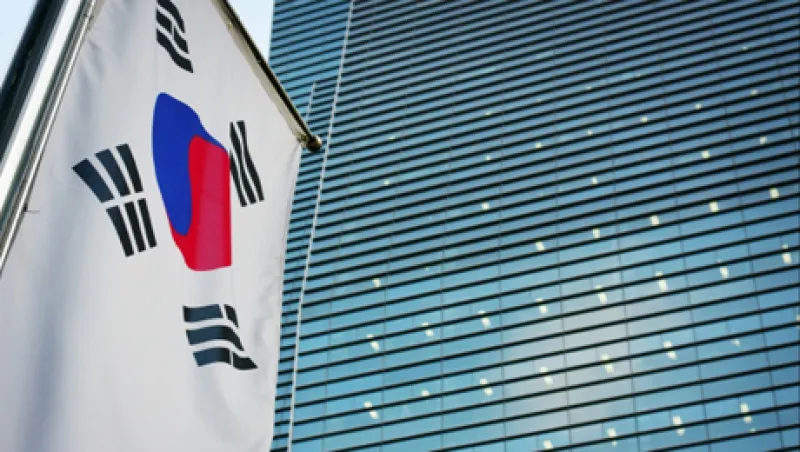When it comes to the broad-based emerging-markets equity ETFs, Vanguard’s MSCI Emerging Markets ETF (VWO) is clearly the top dog. As of December 11, VWO had a market cap of $58.66 billion and an average daily volume of 17.74 million shares.
But back on October 2, Vanguard rocked the ETF world when it said it would drop MSCI of New York City as its index provider on 22 ETFs and substitute two other index providers, in the belief that by doing so, it could achieve “considerable savings for the funds’ shareholders over time.” That includes VWO, which will transition to a FTSE index at some unspecified point next year. Vanguard has been deliberately vague about any sort of schedule.
“We’re not saying exactly when the transitions will begin in order to prevent front-running,” says Joel Dickson, a senior investment strategist and principal in Vanguard’s Investment Strategy Group in Malvern, Pennsylvania. “The transitions will be staggered over several months,” he says, noting that VWO “will take longer than the other funds because it will be divesting all of its holdings in South Korea and investing the proceeds in some markets that are less liquid.”
And VWO’s exposure to South Korea is the problem. As of its latest statement on October 31, VWO had a 15.3 percent weighting in South Korea, including its No. 1 stock holding, Samsung Electronics. And that entire position will have to be eliminated when VWO moves from the MSCI index to the FTSE index.
Among index providers, there’s a vigorous debate as to whether South Korea should be classified as emerging or developed, and while MSCI still considers it to be emerging because of stock market and currency constraints, FTSE upgraded it to the developed-nation status in September of 2008, and implemented the change a year later, says Jonathan Horton, the New York City–based president of FTSE North America and head of its exchange-traded product unit. There’s also a budding price war among ETF sponsors.
Still, the change in benchmarks is “a headache” for some institutional investors, says Dong Lee, the director of institutional sales at New York City’s WallachBeth Capital. It often means they "have to present the investment case for the switch in indices in order to obtain board approval; and there's a lot of work involved in that," he says.
But will institutional investors switch to that other big dog of the category, BlackRock’s iShares MSCI Emerging Markets Index Fund (EEM), and in the process pay a much higher expense ratio of 67 basis points versus VWO’s 20 basis points to stick with MSCI?
BlackRock is certainly hoping they will, and it says it’s already seen significant inflows. From the point where Vanguard made its announcement on October 2, through December 7, EEM has gained $4.5 billion in new assets, says Liz Tennican, head of iShares Institutional Sales for Pensions, Foundations and Endowments, based in San Francisco.
Last week, IndexUniverse said that Vanguard’s VWO had suffered $887.5 million in outflows during November, making it No. 2 on a monthly list of “biggest losers,” while iShares’ EEM was the No. 1 gainer, with $2.34 billion in inflows during November.
For the two behemoths — EEM has $42.53 in market cap and average daily trading volume of 48.92 million shares — November might represent a shift in the balance of power.
There’s a backstory as to how VWO came to dominate the market.
In 2009, rather than replicate the MSCI index in its entirety, EEM used an “optimization” strategy, investing in about 325 of the most liquid stocks in the index, which then included a total of 755 stocks, and about half of its holdings were in more liquid ADRs and GDRs, says Tennican. That strategy resulted in significant tracking error, with EEM underperforming the MSCI index by 6.71 percent. That might sound bad, but in 2009, the MSCI index was up 78.51 percent, and EEM still gained 71.80 percent, according to IndexUniverse. However, Vanguard’s VWO did a better job of tracking the MSCI index, with a 76.32 percent return. iShares has since abandoned that strategy and now has “a basket that looks much more like the benchmark,” with about 830 stocks and just 4 percent of its holdings in ADRs or GDRs, Tennican says.
But the damage had been done, says Lee, who was responsible for institutional sales at Vanguard for four years before joining WallachBeth at the start of this year. At the time, the reaction of institutional investors was “wow, what’s going on with EEM? There’s significant tracking error there,” he says. But once iShares started replicating the MSCI index, there wasn't much difference between the two ETFs aside from VWO's expense ratio advantage and EEM's average daily volume (ADV) advantage.
Lee thinks it will be "very interesting" to see the 13-F filings that will come out in mid-February, listing institutional holders as of December 31 versus the last report on September 30. He says he "thinks a lot of institutions are switching over, despite the higher expense ratio, and they're doing it a little bit early because they don't want to get caught when Vanguard is actually doing the transition."
Vanguard’s Dickson says the firm knew the switch could be a problem for a small number of its institutional holders, “especially the large public pension funds where it takes an act of God to make a change in investment policy,” he says, admitting that for some pension funds, it might be easier “to change the investment as opposed to changing the benchmark.” In fact, he says, they “fully expect” to see more negative cash flow going forward “because we think there’s more than $800 million benchmarked.” But, he adds, “this isn’t about short-term cash flow changes, or we never would have done this index change.” Rather, it’s to “produce cost savings and cost control over time,” and to return those savings to investors, he says.
A statement from Vanguard’s corporate communications department, sent via e-mail, emphasized that “we are committed to proceeding with our plans to move VWO to FTSE.”
BlackRock is equally adamant that it’s not going to shave the 67 basis point expense ratio on EEM. It did, however, take a shot at Vanguard’s business in another way: It simply launched a new MSCI emerging-markets ETF, IEMG, as part of its widely publicized “Core” suite, and that ETF has an expense ratio of just 18 basis points. IEMG is somewhat different from EEM in that it tracks a different MSCI index, the MSCI Emerging Markets Investable Market Index, which covers a wider range of emerging markets stocks, including small caps.
While the big dogs are battling it out, WisdomTree deserves a tip of the hat for the fact that its WisdomTree Emerging Markets Equity Income Fund (DEM) — actively managed and focused on the top 30 percent of dividend payers in the emerging markets — has grown from $2.1 billion to $4.7 billion in assets under management year-to-date through December 11.
WisdomTree, in tandem with Standard & Poor’s, creates its own index, and yes, it has “some South Korea,” says Jeremy Schwartz, WisdomTree’s director of research. But Taiwan is its top country, with a 20 percent weighting, followed by Russia, with 13 percent, he says. Bloomberg reports a dividend yield of 3.53 percent and one-year performance of 9.55 percent as of December 11.
There’s a lot of money flowing into emerging-markets ETFs right now. iShares’ inflows are far greater than the reported outflows on Vanguard’s VWO, so there’s clearly new money flowing into the sector.
And maybe what’s hurting Vanguard right now is not just the change in indexes but the uncertainty over the timing of the move.
There’s another wrinkle. Every June MSCI announces any changes in its country classifications. If MSCI decides to upgrade South Korea to developed status, it could change the whole game.
“South Korea looks and feels like a developed country,” says FTSE’s Horton. He believes it’s not a question as to whether other index providers will upgrade it. The question, he says, is: “When?”






